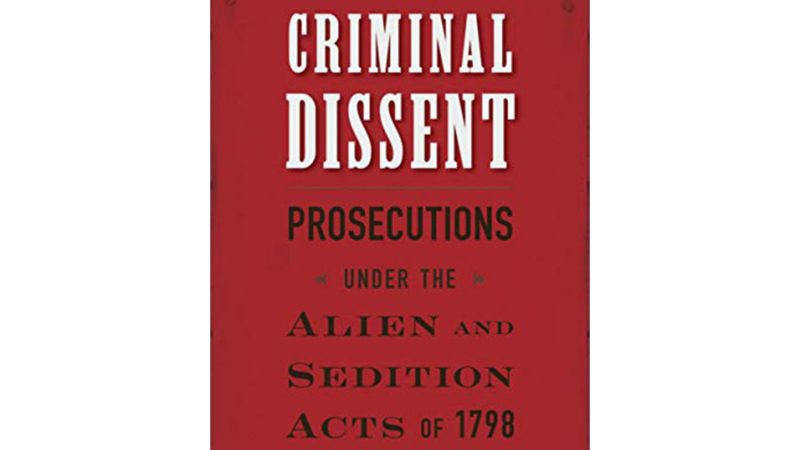Criminal Dissent

For Americans who think they are living through a period of unprecedented partisan animosity, Wendell Bird's new book Criminal Dissent, a history of prosecutions under the Alien and Sedition Acts of 1798, provides some useful perspective.
The period when those laws were enacted and enforced was marked by deep distrust and rancor between Federalists and Republicans, who charged each other with treason, engaged in vicious personal attacks, spread wild conspiracy theories, and literally assaulted each other on the floor of the House of Representatives. And while our current president periodically talks about using the force of law to punish his critics, President John Adams and his allies actually did it, openly and unashamedly.
Bird, a visiting scholar at Emory University School of Law, emphasizes that the Federalists sincerely believed the opposition was not just wrong but fundamentally illegitimate. In their view, the people got a chance to participate in the political process every few years through elections, and they should otherwise keep quiet if they did not have anything nice to say. Criticizing a duly elected government was disruptive, destabilizing, and subversive—in a word, seditious.
Although truth was supposed to be a defense against seditious libel charges, in practice it didn't help. Federalists dominated the legal system that prosecuted, convicted, fined, and jailed their political opponents, including newspaper publishers, a sitting member of Congress, and even a few drunken jokers.
Contrary to the conventional view, Bird conclusively shows that the cramped construction of free speech underlying those cases was not the pre-1798 consensus. It was the illiberal side of a debate that the Federalists ultimately lost, thereby winning a great victory for modern-day dissenters of all political persuasions.


Show Comments (7)